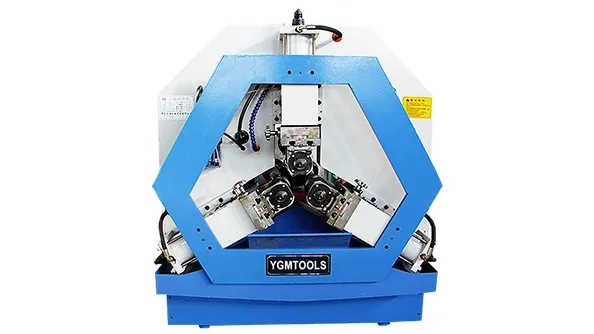
-
 Afrikaans
Afrikaans -
 Albanian
Albanian -
 Amharic
Amharic -
 Arabic
Arabic -
 Armenian
Armenian -
 Azerbaijani
Azerbaijani -
 Basque
Basque -
 Belarusian
Belarusian -
 Bengali
Bengali -
 Bosnian
Bosnian -
 Bulgarian
Bulgarian -
 Catalan
Catalan -
 Cebuano
Cebuano -
 Corsican
Corsican -
 Croatian
Croatian -
 Czech
Czech -
 Danish
Danish -
 Dutch
Dutch -
 English
English -
 Esperanto
Esperanto -
 Estonian
Estonian -
 Finnish
Finnish -
 French
French -
 Frisian
Frisian -
 Galician
Galician -
 Georgian
Georgian -
 German
German -
 Greek
Greek -
 Gujarati
Gujarati -
 Haitian Creole
Haitian Creole -
 hausa
hausa -
 hawaiian
hawaiian -
 Hebrew
Hebrew -
 Hindi
Hindi -
 Miao
Miao -
 Hungarian
Hungarian -
 Icelandic
Icelandic -
 igbo
igbo -
 Indonesian
Indonesian -
 irish
irish -
 Italian
Italian -
 Japanese
Japanese -
 Javanese
Javanese -
 Kannada
Kannada -
 kazakh
kazakh -
 Khmer
Khmer -
 Rwandese
Rwandese -
 Korean
Korean -
 Kurdish
Kurdish -
 Kyrgyz
Kyrgyz -
 Lao
Lao -
 Latin
Latin -
 Latvian
Latvian -
 Lithuanian
Lithuanian -
 Luxembourgish
Luxembourgish -
 Macedonian
Macedonian -
 Malgashi
Malgashi -
 Malay
Malay -
 Malayalam
Malayalam -
 Maltese
Maltese -
 Maori
Maori -
 Marathi
Marathi -
 Mongolian
Mongolian -
 Myanmar
Myanmar -
 Nepali
Nepali -
 Norwegian
Norwegian -
 Norwegian
Norwegian -
 Occitan
Occitan -
 Pashto
Pashto -
 Persian
Persian -
 Polish
Polish -
 Portuguese
Portuguese -
 Punjabi
Punjabi -
 Romanian
Romanian -
 Russian
Russian -
 Samoan
Samoan -
 Scottish Gaelic
Scottish Gaelic -
 Serbian
Serbian -
 Sesotho
Sesotho -
 Shona
Shona -
 Sindhi
Sindhi -
 Sinhala
Sinhala -
 Slovak
Slovak -
 Slovenian
Slovenian -
 Somali
Somali -
 Spanish
Spanish -
 Sundanese
Sundanese -
 Swahili
Swahili -
 Swedish
Swedish -
 Tagalog
Tagalog -
 Tajik
Tajik -
 Tamil
Tamil -
 Tatar
Tatar -
 Telugu
Telugu -
 Thai
Thai -
 Turkish
Turkish -
 Turkmen
Turkmen -
 Ukrainian
Ukrainian -
 Urdu
Urdu -
 Uighur
Uighur -
 Uzbek
Uzbek -
 Vietnamese
Vietnamese -
 Welsh
Welsh -
 Bantu
Bantu -
 Yiddish
Yiddish -
 Yoruba
Yoruba -
 Zulu
Zulu
Exploring the Leading Manufacturers of Steel Thread Rolling Machines in the Industry Today
The Evolution and Importance of Steel Thread Rolling Machine Factories
Steel thread rolling machines are essential tools in the manufacturing industry, particularly for producing high-precision threaded components used across various sectors including automotive, aerospace, construction, and more. These machines have transformed how manufacturers create threaded parts, offering significant advantages over traditional processes like cutting and turning. The emergence and evolution of steel thread rolling machine factories have played a pivotal role in advancements in manufacturing efficiency and product quality.
Understanding Thread Rolling Technology
Thread rolling is a cold-forming process where flat metal dies deform a cylindrical blank to create threads. Unlike cutting techniques, which remove material and can weaken the joint, thread rolling retains the metal's structural integrity, leading to stronger and more durable parts. This process results in superior surface finishes and tighter tolerances, which are critical in applications where precision is paramount. The method is not only efficient but also environmentally friendly, as it minimizes waste and energy consumption.
The Role of Factories in Manufacturing
Steel thread rolling machine factories are specialized facilities dedicated to the production, assembly, and testing of these vital machines. These factories leverage advanced engineering technologies and manufacturing processes to ensure high-quality output. Within their walls, skilled engineers and technicians collaborate to push the boundaries of what these machines can achieve. Continuous investment in research and development allows these factories to innovate and adapt to ever-changing market demands, incorporating features such as automation, digital controls, and improved die materials.
Economic Impact and Global Reach
steel thread rolling machine factories

The growth of steel thread rolling machine factories has had a significant impact on the global economy. As industries increasingly seek to improve productivity and reduce costs, the demand for high-quality threaded components continues to surge. Factories are not only contributing to local economies but are also part of a larger global supply chain. Companies that manufacture and distribute thread rolling machines have established a presence around the world, providing opportunities for both local and international businesses to collaborate.
Moreover, the rise of these factories has stimulated job creation, ranging from engineering positions to skilled labor in manufacturing. The industry demands a workforce proficient in modern technologies and machinery, leading to increased educational opportunities and training programs. This ripple effect contributes to the overall development of the manufacturing sector.
Sustainability and Innovation
In recent years, there has been a growing emphasis on sustainability within steel thread rolling machine factories. Manufacturers are actively seeking ways to minimize their environmental footprint by adopting green practices. This includes optimizing processes to use less energy, recycling materials, and reducing waste. Many factories are incorporating renewable energy sources and implementing more efficient production techniques.
Innovation is also a critical component of these factories. The incorporation of smart manufacturing technologies, such as the Internet of Things (IoT) and artificial intelligence (AI), has redefined how factories operate. These technologies enable better monitoring of production processes, predictive maintenance of equipment, and enhanced quality control measures, ensuring that manufacturers stay competitive in a global market.
Conclusion
The significance of steel thread rolling machine factories cannot be understated. They are at the forefront of manufacturing technology, continuously evolving to meet the demands of a dynamic industrial landscape. As industries continue to innovate and demand higher quality standards, these factories will play a crucial role in shaping the future of manufacturing by providing the tools necessary for precision and efficiency. The ongoing development of sustainable practices and advanced technologies within these facilities will likely set the stage for even greater achievements in the years to come.
